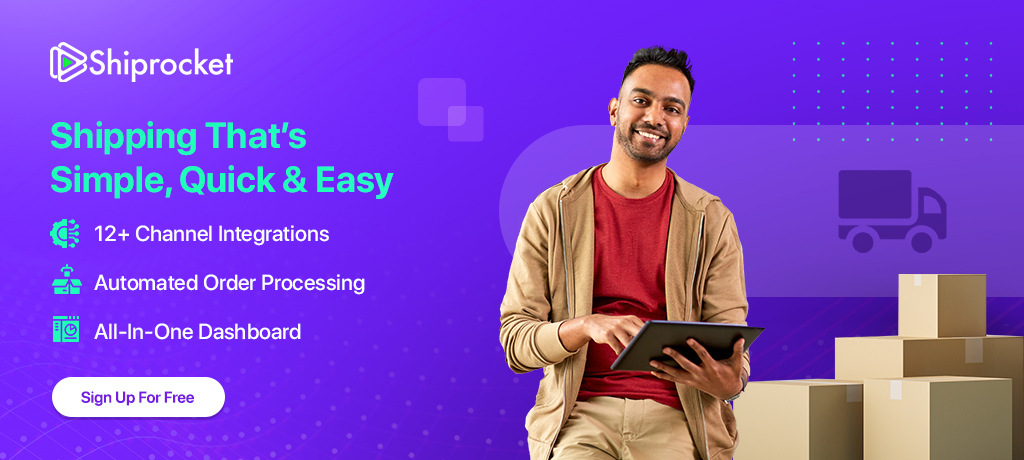Direct to Consumer Model (D2C): Is it Right for Your eCommerce Business?
As an eCommerce seller, you must be familiar with the term Direct-to-Consumer (D2C). This model is applicable for every seller who is involved in the sales of a variety of items ranging from groceries, fashion products to mobile accessories. With the increasing number of D2C sellers and the unwavering interest of the consumers to buy such products, you may have pondered whether such a model will work for your business or not?
In this blog, you will get a deep insight into understanding a D2C sales model and its compatibility with your eCommerce business.
What is a D2C Model?
The D2C model is where a manufacturer sells his products directly to the end-customers. In other words, it is a sales model that eliminates the involvement of all intermediaries, primarily, a wholesaler and a retailer. For instance, if a woman is making handwoven wool scarves and selling them through her website or social media channel; it comes under the D2C sales model.
The Functionality of D2C Model
D2C model, as defined above, is a straightforward process. Any seller willing to sell products directly to his end-customers can set up an online store or promote the products on social media channels to sell the product, without being dependent on a retailer or a third-party store.
This model may seem exclusive to a few businesses. However, it is not the case. A study revealed that around 55% of consumers prefer to buy products directly from a brand or manufacturer’s website. Such numbers depict that a D2C model can be very fruitful if your business deals with selling consumer goods. Besides, it is crucial to ensure your business maintains the model precisely for the best results.
For the same, you need to manage your inventory properly to avoid running out of stock and meet the demands whenever necessary. Moreover, you need to provide your end-customers with adequate post-ship experience for their long-term retention. Shiprocket provides end-to-end warehousing and fulfillment services (FBS) for D2C sellers processing 20+ orders in a day. Click here to read more about FBS and how you can benefit from it.
Advantages of Going D2C
D2C sales model has a lot to offer, and it is helpful for you to discern its numerous advantages. Before proceeding to the tips we have for your consideration, let’s go through some significant benefits of implementing a Direct-to-Consumer sales model:
Increased Sales
As mentioned before, around 55% of the consumers visit a manufacturer’s website intending to purchase a product. It implies that D2C sales model guarantees increased sales for your eCommerce business.
Enhanced Profits
Increased sales attribute to higher revenue and eventually, higher chances for your business to yield significant profits. Producing a robust profit margin is the ultimate goal of every business, which you can achieve with D2C.
Better Administration
Selling products directly to your end-customers allows you to customize their experience. Personalized service, in return, lets your buyers resonate more with your business, thus, compelling them to buy again.
Lesser Dependency
It is a significant limitation for every seller to rely on a third-party. For instance, you may or may not get adequate storage space for your inventory. It restricts the potential for sales and likewise, your business growth. In D2C, there are no such hassles.
Diverse Catalogue
Considering you do not require a physical area for selling your products, you sell from a diverse catalog of products that you want to offer to your end-customers, enabling them to have extensive information and variety.
Factors to Consider for a Successful D2C Transition
If you feel motivated to shift to D2C sales model or wish to start your eCommerce business similarly, there are some factors that you need to consider for a successful transition. Here are the tips we are suggesting you to consider when reaching your customers directly:
- Ensure your products cater to a large number of consumers.
- Sell products that will provide you with better profit margins.
- Make sure your products are easy to ship from one place to another.
- Prefer employing social media influencers for the marketing of your brand to attract a solid consumer base.
- Provide your customers with the facility of easy returns and cash on delivery.
- Prioritize customer support for providing prompt resolutions to the queries and grievances of your customers.
- Make attractive subscription models.
- Work with a reputable eCommerce service provider who can simplify and streamline the order creation and inventory management process.
Conclusion
Considering everything described above, you must have gotten a detailed idea of how you can shift to the D2C sales model for healthy business growth. Shiprocket is a pioneering eCommerce solution provider in India, excelling in helping businesses succeed in D2C sales models.
With Shiprocket, you can connect with the most reliable shipping partners, seamless inventory management, best-in-class logistics solutions, and persuasive customer support to deliver your end-customers with a superior shipping experience. All you need to do is sign up at no cost (zero hidden charges!!) and get started in an instant. Register today and see your business grow.






